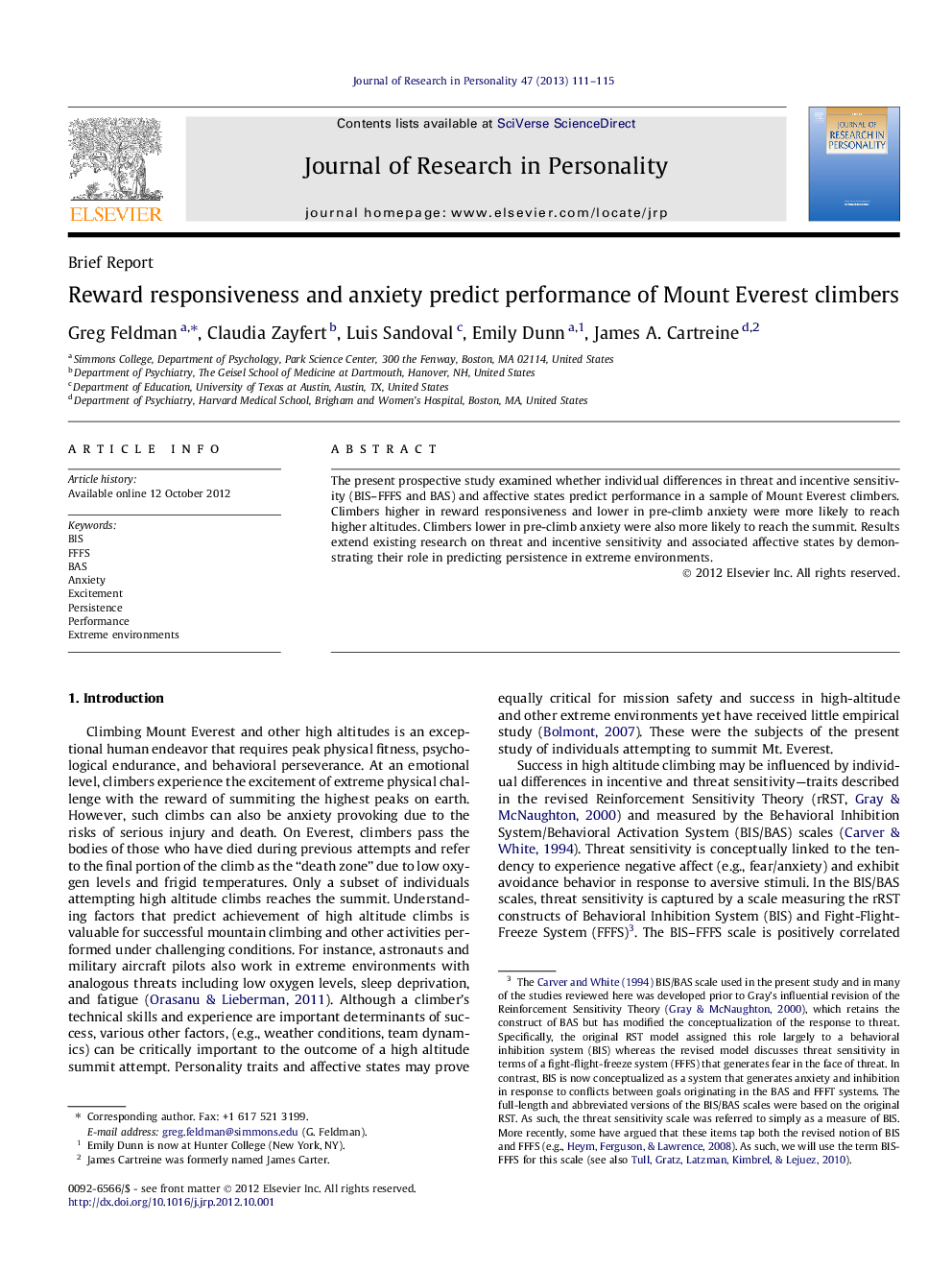| Article ID | Journal | Published Year | Pages | File Type |
|---|---|---|---|---|
| 951448 | Journal of Research in Personality | 2013 | 5 Pages |
The present prospective study examined whether individual differences in threat and incentive sensitivity (BIS–FFFS and BAS) and affective states predict performance in a sample of Mount Everest climbers. Climbers higher in reward responsiveness and lower in pre-climb anxiety were more likely to reach higher altitudes. Climbers lower in pre-climb anxiety were also more likely to reach the summit. Results extend existing research on threat and incentive sensitivity and associated affective states by demonstrating their role in predicting persistence in extreme environments.
► Traits and affective states of Mount Everest climbers were studied. ► Climbers higher in reward responsiveness reached higher altitudes. ► Climbers lower in pre-climb anxiety were more likely to reach the summit. ► Results can inform performance enhancement in extreme environments.
